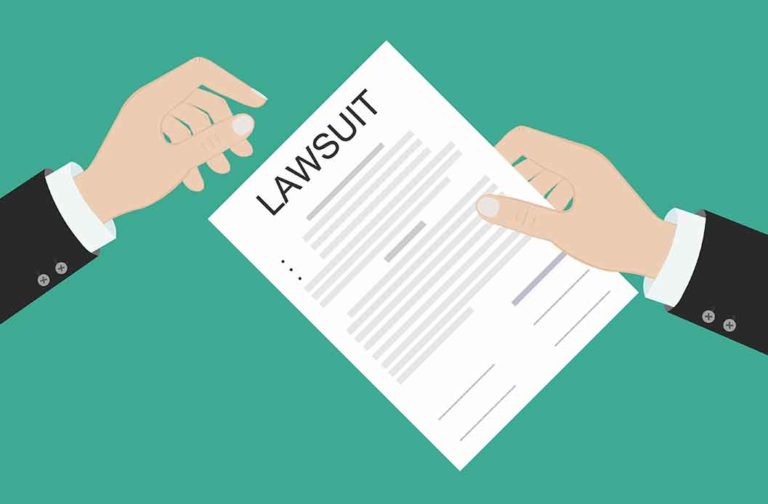
A group of researchers and military veterans are suing the U.S. Drug Enforcement Administration (DEA) over their interpretation and stance on the classification of marijuana.
On Thursday, June 10, the attorneys representing this group made their case to a panel of three judges of the U.S. Court of Appeals for the Ninth Circuit. For the purpose of having the court force the DEA to reconsider marijuana’s federal classification.
However, during the hearing, judges had many questions about the procedural aspects of the case instead of the merits.
“This is a really odd case; your clients filed no petition. You appeal the denial of somebody else’s petition,” Judge William Fletcher said. “Somehow, that doesn’t strike me as reasonable to allow somebody to come in this way, without themselves having filed a petition. To piggyback on the denial of such an odd, abbreviated petition just doesn’t fit with the way the administrative process is supposed to work.”
What makes this case “odd,” as Judge Fletcher pointed out, is that the current issue is going off of a rescheduling petition filed last year. Although, the researchers and military veterans now were not a part of that petition.
Sisley v. DEA
The plaintiffs filed their case in 2020, Sisley v. DEA, stating that “DEA’s justification for maintaining a Schedule I status for marijuana violates the Constitution on numerous grounds.” The DEA attempted to have the case dismissed, but the Ninth Circuit rejected their request in August.
In fact, the DEA argued that marijuana has no currently accepted medical value in the United States.
Now in the current case, lawyers for the group are seeking to appeal that decision. As a result, they are asking the court to order the DEA to begin a formal rulemaking process. This process will involve expert testimony and public comment.
The lawyers claim that DEA’s past dismissal of rescheduling petitions has demonstrated unconstitutional proceedings and prevented research into marijuana’s medical potential.
Creating Precedence In Sisley v. DEA
Matt Zorn is one of the lawyers for the plaintiffs. During oral arguments, Zorn brought up multiple cases to justify why his clients have merit to challenge the DEA’s denial of the original petition. The most notable example he used for precedent is the case of Massachusetts v. EPA.
In this situation, Massachusetts challenged the denial of a petition filed by another party. But, then again, the judges pointed out that none of the cases cited explains who can and cannot appeal an agency decision.
Under those circumstances, Justice Department lawyer Daniel Aguilar, representing the federal government at the argument, urged the court to dismiss the case and allow the group to file their own DEA rescheduling petition themselves.
The Issue With Schedule I
Over the years, lawsuits against the federal prohibition of cannabis have tried and repeatedly failed to change marijuana’s Schedule I status.
Under the Controlled Substances Act, cannabis is classified as a Schedule I Drug. The Act defines it as having “no currently accepted medical use and a high potential for abuse.”
The issue here is that marijuana is a Schedule I drug due to the absence of clinical trials. Still, clinical trials cannot commence because of the plant’s Schedule I status. The argument is that unless marijuana’s Schedule I status changes, researchers cannot adequately perform clinical trials on the plant.
Fighting For A Change
The lawyers for the group have brought up concerns about DEA’s scheduling standards. They feel that the standards are outdated and arbitrary.
The lawsuit aims to review the DEA’s five-part test that originated in 1992. In the United States, when the DEA begins the process to determine whether a drug has approval for “accepted use in medical treatment,” they use the five-part test. This test looks at:
- Whether a drug’s chemistry is known and reproducible
- If there are adequate safety studies
- So-long-as there are adequate and well-controlled studies proving the efficacy
- Whether qualified experts do not accept the drug
- Whether the scientific evidence is not widely available
They are asking the court to set aside the 1992 five-factor test moving forward. Zorn said that the lawsuit is about “challenging the rule that the DEA uses to evaluate rescheduling petitions.”
“What has been animating all of these lawsuits is that we can’t get the research done. The ideal result is that we stop filing lawsuits, and the administration decides it wants to support cannabis research. But until that happens, we’ll be in the courts,” Zorn said.
What Comes Next?
During these initial hearings all a petitioner can do is take the opportunity to brief and explain their case to the judges. It is crucial to address any concerns or questions a judge brings up.
Moving forward Zorn said that their “hope is that the panel reaches the merits.” Deciding that zorn and his clients have the rights to bring this case to a court’s attention.
If the judges rule that Zorn does have merit then the next step will be preparing to go before a court. In contrast, if the judges decide that there is no merit in this lawsuit, Zorn will have the opportunity to start over and file their own petition with the DEA and then go through the DEA’s petition process.
Make sure to check back for more cannabis and hemp related news.